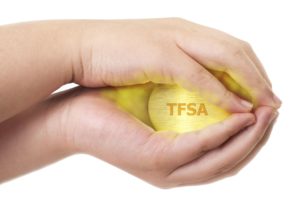 The introduction of the Tax-Free Savings Account (TFSA) from the Conservative government in 2009 provided all Canadians with the opportunity to accumulate monies tax-sheltered and tax-free upon withdrawal. It can be a great source of tax-free retirement income preventing or minimizing the Old Age Security (OAS) claw back. To maintain the inherent tax-free benefits of the TFSA, the annuitant needs to ensure they have properly designated the benefactor of the account.
The introduction of the Tax-Free Savings Account (TFSA) from the Conservative government in 2009 provided all Canadians with the opportunity to accumulate monies tax-sheltered and tax-free upon withdrawal. It can be a great source of tax-free retirement income preventing or minimizing the Old Age Security (OAS) claw back. To maintain the inherent tax-free benefits of the TFSA, the annuitant needs to ensure they have properly designated the benefactor of the account.
The methods of transferring one’s TFSA to a benefactor has created complexities. This is Part 1 of 2 in understanding how to protect your legacy.
When the holder of a TFSA dies, the income and gain in value accrued up to the date of death are not taxable. However, the income and gain in value accrued in the TFSA after the date of death are taxable, except if the surviving spouse/common-law partner has been designated as successor holder, not beneficiary.
Designation of Spouse/Common-law Partner as Successor Holder
Only a spouse or common-law partner can be designated as successor holder in a TFSA contract or Will. In this respect, the surviving spouse becomes the new TFSA holder as soon as the initial holder dies. This is an optimal method since it is the only way for the income and gains earned in the TFSA after the date of death to be tax-exempt. In addition, after the death of the initial TFSA holder, such a designation will not affect the surviving spouse’s unused contribution room.
However, for TFSA holders in Quebec, the designation of successor holder is currently only allowed if the TFSA is tied to an insurance policy or annuity contract, such as segregated funds. At present, most TFSAs in Quebec do not allow the designation of a successor holder.
Let us look at the case of Jennifer, who lives in Ontario. Jennifer is the holder of a TFSA and has designated her spouse, Carl, as successor holder. Jennifer dies at which time the value of her TFSA is $45,000. Income of $1,000 has accrued in the TFSA since the date of death.
Carl has become the new holder of Jennifer’s TFSA. Neither the value of the TFSA of $45,000 at the date of death or the income of $1,000 earned after the date of death is taxable. In such a case, Form RC240, “Designation of an Exempt Contribution Tax-Free Savings Account (TFSA),” does not have to be submitted.
Designation of Beneficiary other than Spouse/Common-Law Partner
If, instead, a beneficiary was designated in the TFSA contract or Will, the income and gains accrued up to the date of death are also tax-exempt. However, the income and gains earned after the date of death are taxable for the beneficiary.
Let us take the case of Denise, who lives in Ontario and is the holder of a TFSA. Denise designated her son, Pierre, as the beneficiary for her TFSA. Denise dies at which time the value of her TFSA is $45,000. Income of $1,000 has accrued since the date of death and the full amount of the TFSA, $46,000, is paid to Pierre…
The value of the TFSA of $45,000 at the date of death is not taxable. The income of $1,000 earned after the date of death is taxable for Pierre. The latter may use all or part of the funds he has received to contribute to his own TFSA, provided he has unused contribution room.
Bequest TFSA to Legatee other than the Spouse/Common-Law Partner
The bequest of a TFSA in a Will to a legatee other than the spouse or common-law partner will have the same tax implications as those indicated above, regardless of the TFSA holder’s province of residence at the time of death.
In Quebec, in most cases, given that the designation of a beneficiary is currently only allowed if the TFSA is tied to an annuity contract or insurance policy, the transfer of a TFSA at death will generally be done through a bequest in the Will.
Let us go back to the case of Denise if she lives in Quebec. Denise is the holder of a TFSA, which she bequeathed in her Will to her son, Pierre. Denise dies at which time the value of her TFSA is $45,000. Her estate is settled at which time income of $1,000 has accrued and the full amount of the account, $46,000, is paid to Pierre.
The value of the TFSA of $45,000 at the date of death is not taxable. The income of $1,000 earned after the date of death is taxable. This amount of $1,000 is to be included in Denise’s estate but will ultimately be taxed in Pierre’s hands under regular trust taxation rules. Pierre may use all or part of the funds he has received to contribute to his own TFSA, provided he has unused contribution room.
Designation of an “Exempt Contribution”1 by Surviving Spouse/Common-Law Partner
A surviving spouse or common-law partner designated as the successor holder of the spouse’s TFSA has the option to contribute and designate all or a portion of the payment as an “exempt contribution” to their own TFSA. Doing so has the advantage of not affecting their unused contribution room. However, the following conditions must be met for a contribution to qualify as an “exempt contribution”:
- An amount paid out directly or indirectly [through a Will] of an arrangement that ceased to be a TFSA upon the death of its holder must be made to the surviving spouse/common-law partner following the holder’s death.
- A contribution is made by the surviving spouse to their own TFSA by December 31 of the calendar year that follows the year of death (rollover period).
- The surviving spouse is not required to fill out form RC240, “Designation of an Exempt Contribution Tax-Free Savings Account (TFSA),” since he/she was classified as successor annuitant. If the designation was classified as beneficiary, then the surviving spouse must complete RC240 and send it to tax authorities within 30 days after the day of the contribution to their own TFSA account and
- The amount of the “exempt contribution” must not exceed the fair market value of the TFSA at the time of death.
Julie, who lives in Ontario is the holder of a TFSA and has designated her spouse, Luc, as the beneficiary not successor annuitant. Denise dies and the value of her TFSA is $45,000. Income of $1,000 has accrued since the date of death until the time when the full amount of the TFSA, $46,000, is paid to Luc.
The value of the TFSA of $45,000 at the date of death is not taxable. However, the income of $1,000 earned after the date of death is taxable for Luc. Luc contributes $45,000 to his TFSA. Given that Luc has contributed the amount of $45,000 to his own TFSA during the rollover period, he can treat this contribution as an “exempt contribution” by filing form RC240 with the CRA within 30 days following the contribution date. Such an “exempt contribution” will thus have no effect on Luc’s unused contribution room. If Luc wanted to contribute all or a portion of the income of $1,000, he received to his own TFSA, this would reduce his contribution room by the same amount.
Designating the benefactor of an TFSA as a successor annuitant, beneficiary or through a Will has its own set of tax rules. In order to fulfill your estate plans, its important to understand the guidelines and how your designation will be administered by CRA. Make sure you understand the facts before proceeding.
In Part 2, I will discuss the transfer of an TFSA by bequest and intestate succession along with unused contribution room of the deceased.
